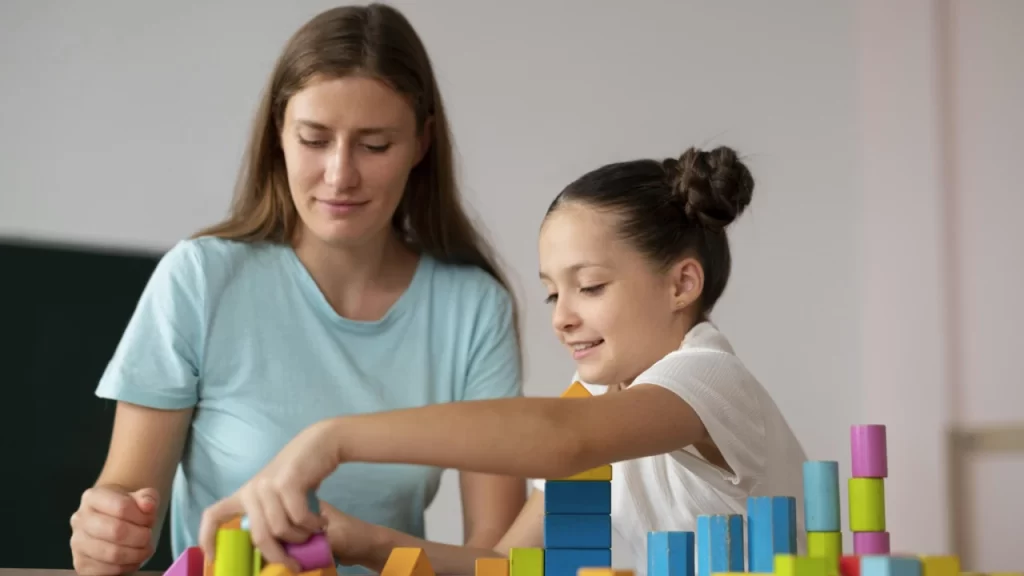Occupational therapy plays a crucial role in supporting children with developmental delays by addressing their unique needs and promoting optimal development. Through a comprehensive and individualized approach, occupational therapists help children acquire essential skills and overcome challenges to enhance their overall functioning and participation in daily activities.
Assessment and Evaluation:
Occupational therapists begin by conducting thorough assessments to understand the child’s strengths, limitations, and areas of need. This may involve observing the child’s motor skills, sensory processing abilities, cognitive functioning, self-care skills, social interactions, and play skills. Assessments help identify specific developmental delays and provide a baseline for goal setting.
Sensory Integration and Regulation:
Children with developmental delays often face challenges in processing sensory information. Occupational therapists use sensory integration techniques to help children effectively respond to sensory stimuli and regulate their responses. This may involve activities that provide sensory input to help the child’s nervous system organize and integrate sensory information, leading to improved attention, self-regulation, and overall participation in daily activities.
Motor Skills Development:
Occupational therapists focus on improving children’s motor skills, including both gross motor and fine motor abilities. Gross motor skills involve movements such as crawling, walking, running, and jumping, while fine motor skills involve activities like grasping objects, using utensils, and writing. Therapists use various exercises, play-based activities, and specialized interventions to enhance motor coordination, strength, balance, and dexterity.
Self-Care Skills:
Occupational therapy helps children with developmental delays develop essential self-care skills, also known as activities of daily living (ADLs). These skills include dressing, feeding, toileting, grooming, and hygiene routines. Occupational therapists provide individualized strategies, adaptations, and step-by-step instruction to facilitate independent self-care and promote confidence and self-esteem.
Cognitive and Perceptual Development:
Children with developmental delays may experience challenges in cognitive and perceptual abilities, such as attention, problem-solving, visual perception, and spatial awareness. Occupational therapists employ specific interventions to improve cognitive skills, executive functioning, and perceptual abilities. They may use games, puzzles, visual-motor activities, and memory exercises to enhance cognitive development.
Social Skills and Play:
Occupational therapy focuses on developing social skills and fostering appropriate play behaviors in children with developmental delays. Therapists facilitate opportunities for social interaction, communication, turn-taking, sharing, and cooperation through structured activities, role-playing, and social skills training. Play-based interventions help children build social connections, develop friendships, and engage in age-appropriate play activities.
Family and Caregiver Involvement:
Occupational therapists actively involve families and caregivers in the intervention process. They provide education, resources, and strategies to support the child’s development and extend therapy goals into the home environment. Collaboration with parents and caregivers helps ensure consistency and carry-over of therapeutic techniques, maximizing the child’s progress.
Conclusion:
Occupational therapy offers a comprehensive and individualized approach to supporting children with developmental delays. Through assessments, sensory integration, motor skills development, self-care training, cognitive and perceptual interventions, social skills development, and active involvement of families and caregivers, occupational therapists address the unique needs of each child. By promoting independence, confidence, and functional abilities, occupational therapy empowers children with developmental delays to overcome challenges and participate meaningfully in daily activities.

